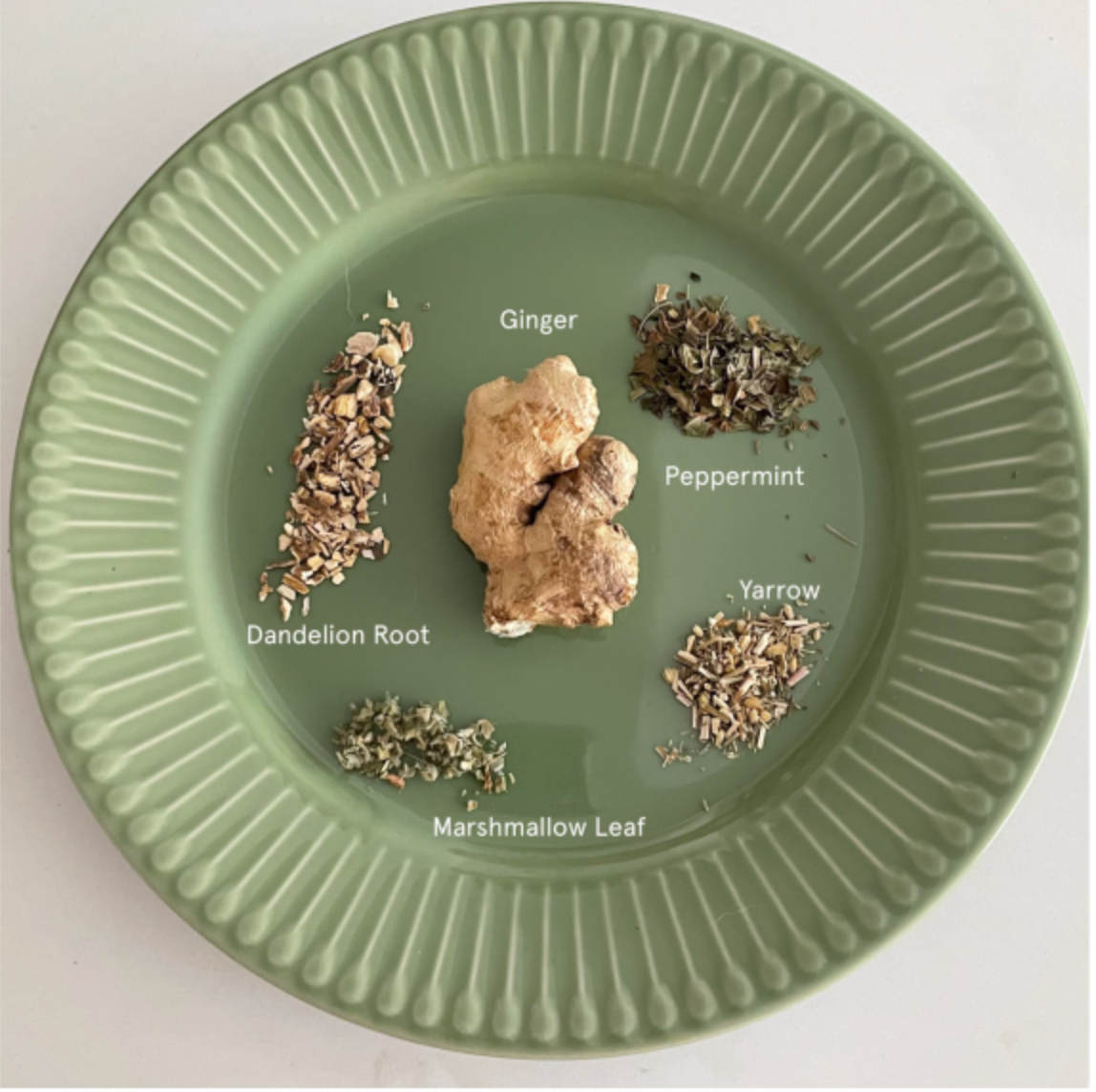Digestive woes: it plagues many of us. Whether you’re triggered by stress, lack of sleep or certain foods, there are several reasons why you may feel bloated gut irritation. You are not alone.

Living with Crohn’s Disease for over 22 years, I have tried so many different kinds of medications, experienced multiple surgeries and had serious bouts of inflammation that caused me to be bed-ridden. There were times of feeling helpless. Times where I would throw up or run to the bathroom from eating something as simple as a white potato. And I knew that to begin true healing, I had to do the work. Healing comes from empowerment.
Freedom Rivera, a psychotherapist, teacher of radical self-compassion and friend, says:
“when it comes to health, there is no negotiation between you and your ‘to do list.’ In the case for people who are suffering from gut issues, a practice of self care and self-kindness must be consistent. At the beginning this might look like a mighty task but if you start this practice from a place of compassion for your body and yourself then this task can become a habit and even a sacred ritual.”
The Mind-Gut connection is a beautiful conversation in our bodies. And herbs can be supportive allies, aiding us along the way. Here are some herbs that may be beneficial for digestion. These herbs are simple, easy to consume and could be a part of your fun daily ritual.*
Marshmallow Root + Leaf (Althea officinalis)
Praised by Egyptians, this wonderful herb may soothe and cool inflamed tissues, building mucilage that protects and coats the digestive lining. Marshmallow root is best as a cold infusion, meaning you steep it in cold water (not hot). Leave it for 20 minutes or up to a few hours, and it will have a gelatinous effect.
Peppermint (Mentha x piperita)
A widely used herb that originated from Europe and grows beautifully. The essential oils of peppermint contain high levels of menthol which can cause relaxation to the stomach and digestive muscles. It has been known to help with nausea, bloating and gas. It’s great to enjoy as a tea right after a meal.
Ginger (Zingiber officinale)
This is a common household herb that is a carminative, which means it breaks up gas. Herbalist Maria Noël Groves shares in her book Body Into Balance: An Herbal Guide to Holistic Self-Care, that ginger “contains protein-digesting enzymes. Its spicy nature warms up a sluggish digestive system, promotes beneficial bacteria, kills gut pathogens, and relieves gas, pain, bloating and… nausea." This herb could benefit people with slow digestion or feeling backed-up, whereas it wouldn’t be used for someone who is constantly running to the bathroom. Chop up some fresh ginger and pour over hot water, known as a simple herbal infusion. Then let steep for 7-10 minutes and enjoy after a meal!
Dandelion Root (Taraxacum officinale)
Dandelion root comes from the common beautiful “weed” dandelion. It is a strong bitter herb. Digestive bitters help stimulate the production of gastric juices. As Jean Willoughby shares in Nature’s Remedies, An Illustrated Guide to Healing Herbs, dandelion “increases the flow of bile from the gallbladder into the small intestine, which stimulates peristalsis…this contributes to dandelion’s gentle laxative effect. It is also a diuretic, a medicine that increases elimination.” Many people compare the bitter taste to being reminiscent of coffee (without the caffeine) and is nice to enjoy as a beverage in the morning.
Yarrow (Achillea millefolium)
Fun fact: yarrow was used by Roman soldiers as a protective healing element. It is a great bitter tonic, and a cold and dry herb (when referring to herbal energetics). Matthew Wood writes in The Book of Herbal Wisdom, yarrow “tones the mucosa of the tract, increasing cellular activity and secretion”. This herb has a beautiful yellow flower. The flowers and leaves could be used in a tea, tincture, glycerine or more. Stalks and mature leaves should be avoided.
Within your own practice, know that a simple daily ritual is an empowering step on your health journey.
-Laura Rubin, Founder of Nurture
*Note that these are recommendations, and by no means prescriptions. These statements have not been evaluated by the Food and Drug Administration. This product is not intended to diagnose, treat, cure, or prevent any disease. The content is not intended to be a substitute for professional medical advice, diagnosis, or treatment. Always seek the advice of your physician or other qualified health provider with any questions you may have regarding a medical condition.



